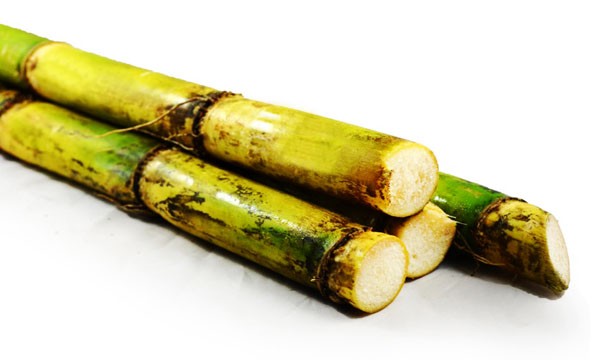A Thorough Overview of the Health And Wellness and Economic Effects of Walking Stick Sugar Handling on Local Neighborhoods
Cane sugar processing plays a critical duty in shaping the economic landscape of neighborhood communities, providing employment opportunities and promoting ancillary sectors. The health and wellness ramifications linked with high sugar usage can not be forgotten, as they contribute to increasing prices of obesity and diabetes mellitus.
Financial Advantages of Walking Cane Sugar Processing
Cane sugar handling provides substantial financial benefits that prolong past the immediate farming industry. The growing and processing of sugarcane develop countless job possibilities, from farming to manufacturing and circulation. This employment generation not only supports local economic climates yet additionally cultivates community development by supplying stable earnings resources for families.
Additionally, the sugar sector stimulates supplementary services, consisting of transport, devices supply, and product packaging solutions (Cane Sugar Processing). As these industries grow, they add to a much more durable financial structure, boosting overall community resilience. The export possibility of processed walking stick sugar even more enhances economic advantages, placing regions as affordable gamers in worldwide markets
Investment in modern processing centers can bring about enhanced efficiency and effectiveness, therefore decreasing waste and optimizing source usage. This shift not only profits the neighborhood economy however additionally sustains sustainability initiatives by minimizing environmental effects.
Furthermore, the profits produced from walking cane sugar processing can be reinvested in regional framework, education and learning, and medical care, advertising all natural area development. Generally, the economic benefits of walking stick sugar processing are multifaceted, providing a foundation for enduring success in agricultural regions.
Wellness Threats Connected With Sugar Consumption
Too much sugar intake postures considerable wellness threats that necessitate serious interest. High consumption of added sugars, especially from processed beverages and foods, has actually been linked to various wellness problems. Among one of the most important problems is weight problems, as sweet diet plans add to a boosted calorie intake without offering important nutrients. This unwanted can cause metabolic conditions, consisting of kind 2 diabetes, which has ended up being progressively widespread in both children and grownups - Cane Sugar Processing.
Additionally, high sugar usage is linked with cardiovascular disease. Elevated blood sugar degrees can lead to insulin resistance, a forerunner to different heart-related issues. In addition, sugar can have destructive impacts on dental health, resulting in dental caries and gum condition, as germs in the mouth flourish on sugar, creating acids that deteriorate tooth enamel.
Furthermore, arising study recommends a prospective link in between high sugar intake and mental health problems, such as clinical depression and anxiety. As areas grapple with these health and wellness threats, it becomes necessary to promote awareness and encourage much healthier dietary options. Resolving sugar intake is crucial not only for individual health but likewise for the total wellness of regional areas, highlighting the demand for thorough public health and wellness techniques.
Environmental Influences of Sugar Production
Often overlooked in discussions concerning sugar's implications is the substantial environmental influence of sugar manufacturing. The growing of sugarcane typically necessitates considerable land use, resulting in logging, loss of biodiversity, and disturbance of regional ecosystems. The conversion of woodlands and wetlands right into sugar ranches can lead to habitat damage, threatening many species and modifying eco-friendly balance.
Moreover, sugar manufacturing is resource-intensive, consuming significant amounts of water for watering. This can cause deficiency of neighborhood water resources, detrimentally impacting both agricultural techniques and community access to clean water. check my source Additionally, using chemical fertilizers and chemicals in sugarcane farming can contribute to dirt degradation and water air pollution, as overflow from these chemicals goes into nearby rivers and lakes, impacting water life and human health and wellness.
The environmental impact encompasses the handling phase, where power usage and waste generation further aggravate eco-friendly problems. Air pollution from burning sugarcane fields, together with greenhouse gas discharges, add to environment change. Because of this, the environmental implications of sugar production warrant significant consideration, urging stakeholders to adopt more sustainable practices to minimize these adverse impacts on local ecological communities and neighborhoods.
Work Development and Area Development
The environmental difficulties posed by sugar production are typically counterbalanced by its possibility for economic benefits, particularly in job production and community development. The walking stick sugar industry acts as a considerable resource of work in several rural areas, supplying tasks throughout various ability degrees, from farming labor to handling and circulation duties. This employment not just supports specific family members however additionally adds to the general economic vigor of neighborhood areas.
Moreover, the facility of sugar handling centers promotes ancillary businesses, such as transportation services, equipment supply, and maintenance providers. As these organizations flourish, they produce additional tasks and strengthen regional economies. The profits produced Going Here from the sugar industry also results in increased tax obligation profits, which can be reinvested into social work such as health care, education, and facilities growth.
Furthermore, the sugar industry usually engages in neighborhood development initiatives, such as supporting regional institutions and health and wellness programs, thus boosting the lifestyle for residents. By fostering strong neighborhood ties and advertising economic growth, the walking cane sugar handling market plays a crucial function in uplifting neighborhood populaces, making it a crucial element of lasting development approaches in sugar-producing regions.
Harmonizing Health and Economic Development
In browsing the complexities of walking cane sugar handling, a vital difficulty lies in stabilizing health and wellness factors to consider with financial growth. The sugar sector significantly contributes to local economic situations by generating tasks, boosting associated markets, and increasing tax earnings. Nevertheless, the wellness implications related to extreme sugar consumption can result in persistent conditions such as excessive weight, diabetic issues, and cardio issues, which can concern public health and wellness systems and lessen workforce efficiency.

Moreover, governing structures can play a crucial role in guiding sector techniques towards more health-conscious and lasting methods. By cultivating cooperation between government bodies, wellness companies, and the sugar sector, neighborhoods can navigate the dichotomy of wellness and economic growth, guaranteeing that the advantages of cane sugar handling are equitably shared while prioritizing public health.
Final Thought
In final thought, the handling of walking cane sugar presents both significant economic advantages and notable health and wellness dangers for regional areas. While it cultivates job development and promotes regional advancement, the connected health and wellness problems, particularly relating to weight problems and diabetes mellitus, necessitate a careful harmonizing act. By advertising accountable consumption and investing in community education and learning and lasting methods, it is feasible to maximize financial advantages while lessening unfavorable wellness effects, therefore making certain a much healthier future for regional populaces.
In addition, sugar can have damaging effects on dental wellness, resulting in dental caries and periodontal disease, as germs in the mouth grow on sugar, generating acids that wear down tooth enamel.
Attending to sugar consumption is vital not only for specific health and wellness however likewise for the total wellness of local neighborhoods, emphasizing the demand for thorough public health and wellness strategies.
Often forgotten in discussions about sugar's implications is the substantial ecological impact of sugar production. The wellness implications connected with extreme sugar consumption can lead to persistent diseases such as weight problems, diabetic issues, and cardiovascular concerns, which can concern public health and wellness systems and decrease workforce efficiency.
